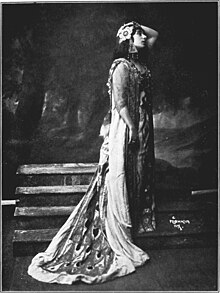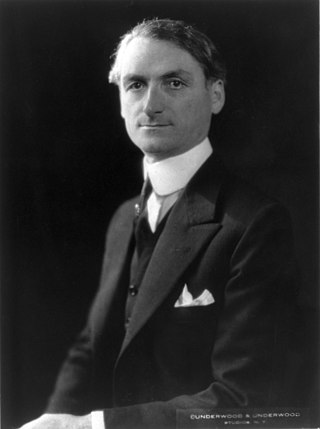
Italo Montemezzi was an Italian composer. He is best known for his opera L'amore dei tre re, once part of the standard repertoire. It is now seldom performed.

Cesare Siepi was an Italian opera singer, generally considered to have been one of the finest basses of the post-war period. His voice was characterised by a deep, warm timbre, a full, resonant, wide-ranging lower register with relaxed vibrato, and a ringing, vibrant upper register. Although renowned as a Verdian bass, his tall, striking presence and the elegance of phrasing made him a natural for the role of Don Giovanni. He can be seen in that role on Paul Czinner's 1954 film of the opera made during an edition of the Salzburg Festival under the baton of Wilhelm Furtwängler.

L'incantesimo is a short opera in one act by Italian composer Italo Montemezzi. Its libretto was written by playwright Sem Benelli who had previously collaborated with the composer on his most famous opera, L'amore dei tre re. Benelli finished the text in 1933, and Montemezzi started work on the score, but the composer's unpleasant relationship with Mussolini's government made Italy inconducive to creative work. Montemezzi resumed work on L'incantesimo during the summer of 1943 in Beverly Hills, his home during a 10-year sojourn in the United States. Upon completion of the score, he offered it to the NBC Symphony, professing admiration for their orchestra.

La nave is an opera in a prologue and three "episodes" by Italian composer Italo Montemezzi. Its Italian-language libretto was adapted by Tito Ricordi from Gabriele D'Annunzio's 1908 play of the same name. It premiered at La Scala in Milan on 3 November 1918.

Edward Patrick Johnson, CBE was a Canadian operatic tenor who was billed outside North America as Edoardo Di Giovanni. He became general manager of the Metropolitan Opera in Manhattan, New York City from 1935 to 1950.
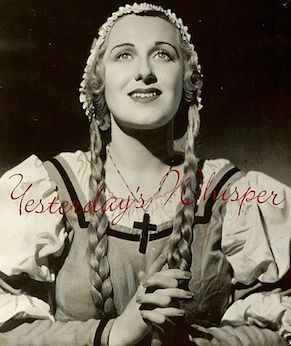
Vivian Della Chiesa was an American lyric soprano who achieved a high level of popularity in the United States singing on the radio during the 1940s and the early 1950s.
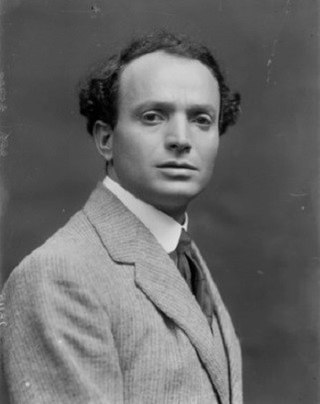
Sem Benelli was an Italian playwright, essayist and librettist. He provided the texts for several noted Italian operas, including Italo Montemezzi's L'amore dei tre re and L'incantesimo, and Umberto Giordano's La cena delle beffe, based on Benelli's own play of the same title. He was a native of Prato. His dramatic play of La Gorgona was first staged in Trieste in 1913.

Francesco Albanese was a lyric tenor, particularly associated with the Italian repertory.
Nello Santi was an Italian conductor. He was associated with the Zürich Opera House for six decades, and was a regular conductor at the Metropolitan Opera in New York City. He was focused on Italian repertoire, especially operas by Verdi and Puccini, in a style following the tradition of Toscanini. He made sound and video recordings of Italian operas, including in 1971 Leoncavallo's Pagliacci with Plácido Domingo, Montserrat Caballé and Sherrill Milnes, in 1976 Montemezzi's L'amore dei tre re with Anna Moffo, Domingo and Pablo Elvira, in 2000 Verdi's I due Foscari, and in 2006 Donizetti's Don Pasquale in a Zürich production. Santi conducted from memory, and said "I love all of Verdi, but when he composed Rigoletto, Il trovatore and La traviata he was in a profound state of grace."
Armando Agnini was a successful Italian stage director of opera.

Teatro Grattacielo is a professional opera company based in New York City specializing in concert performances of rarely heard verismo operas. The company's past performances have included the North American premieres of Mascagni's Il piccolo Marat and Riccardo Zandonai's I cavalieri di Ekebù and La farsa amorosa. Its name means "Skyscraper Theatre" in Italian, a reference not only to the New York skyline but also to the Teatro Grattacielo in Genoa, a cinema which was the city's temporary opera house while the Teatro Carlo Felice was rebuilt after extensive damage in World War II.
Enzo Sordello was an Italian operatic baritone.
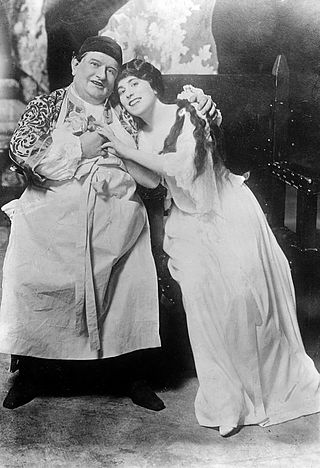
L'amore medico is an opera in two acts by composer Ermanno Wolf-Ferrari. Based on Molière's comedy L'Amour médecin, the work uses an Italian language libretto by Enrico Golisciani. It premiered in a German version by Richard Batka on 4 December 1913 at the Hoftheater in Dresden under the title Der Liebhaber als Arzt.
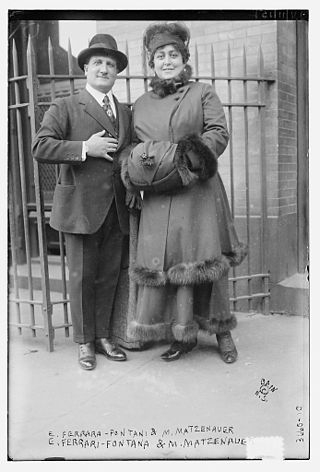
Edoardo Ferrari-Fontana was an Italian tenor.
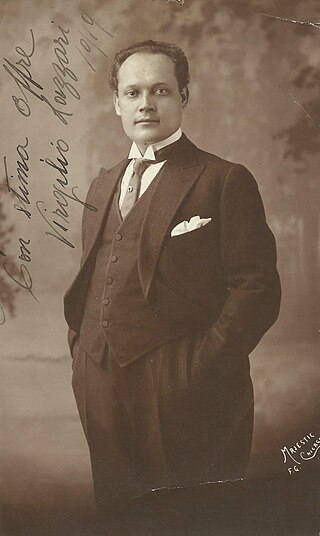
Virgilio Lazzari was an Italian operatic bass who had an active international performance career from 1908 to 1953. He had lengthy associations with the Chicago Civic Opera (1918–1932) and the Metropolitan Opera (1933–1950), and frequently performed at the Salzburg Festival during the 1930s. He appeared as a guest artist with opera houses internationally, including the Royal Opera House, the Teatro Colón, and the Teatro Carlo Felice among others.

Maria Carbone was an Italian operatic soprano. She created the lead female roles in two of Gian Francesco Malipiero's operas: the title role in Ecuba and Cleopatra in Antonio e Cleopatra.
Marcus Haddock is an American opera singer and voice teacher who in the course of his 25-year stage career sang leading tenor roles throughout the United States and Europe. Born in Fort Worth, Texas and trained at the Boston University College of Fine Arts under Phyllis Curtin, Haddock began his career in the United States after winning the Metropolitan Opera National Council Auditions in 1984. From the late 1980s to the late 1990s he was primarily based in Europe where he sang in all the major opera houses, sometimes performing under the name Marcus Jerome-Haddock. He increasingly sang in American opera houses from 1998 and made his Metropolitan Opera debut in 2003 in the title role of Faust. His early roles were those of the tenore di grazia repertoire, but as his career progressed he also took on heavier lyric and spinto tenor roles such as Rodolfo in La bohème and Don José in Carmen, both of which he has recorded. Haddock retired from the stage in 2009 after suffering two serious strokes, and began a new career as a voice teacher in 2012.
Roberto Moranzoni was an Italian conductor, principally of opera.
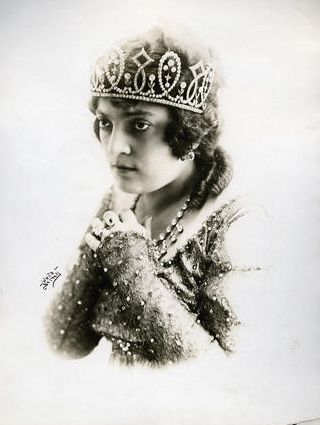
Luisa Villani was an Italian operatic soprano of American birth. She is best remembered for creating the role of Fiora in the world premiere of Italo Montemezzi's L'amore dei tre re at La Scala in 1913.
